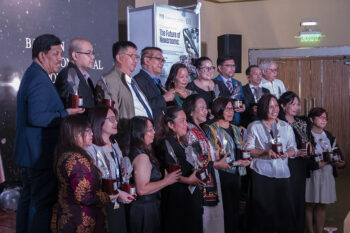
MATALAM, North Cotabato (MindaNews / 29 April)—The province of Maguindanao never took so much share of the limelight until the so-called “Maguindanao Massacre” happened during the incumbency of Datu Andal Ampatuan Sr. as governor of the province. That fateful November 23, 2009 event is here to stay as the most gruesome killings that ever happened in the history Philippine political violence.
Fifty-eight people were killed in broad daylight in Sitio Damasalay, in the town of Ampatuan, Maguindanao.
After 58 lives were lost, volumes of documents browsed, more than 300 witnesses, and more than 10 years of court litigation, the so-called “trial of the decade” has come to a close. But not political violence as it continued to happen elsewhere in other parts of the country.
We thought that with the imprisonment of most of the perpetrators of that crime, the chapter of impunity on political violence in the country has come to its closure. As recent events were being unearthed, that is not going to be the situation, at least for now.
Political violence, maybe of lesser magnitude and scope than the “Maguindanao Massacre,” had happened in the provinces of Cordillera and Masbate in the past. Every election or when election draws near, the Philippine National Police comes out with its list of “election hotspots” or areas that are prone to political violence. Sadly though, the list contains almost always the same areas and political clans involved.
Then, on March 4, 2023 this year, the country was shocked with the killing of Negros Oriental Governor Roel Degamo in broad daylight or just before 10 o’clock in the morning. The “massacre” happened in Gov. Degamo’s residence in Pamplona, Negros Oriental while people were gathered as they were receiving assistance under the “Pantawid Pamilyang Pilipino Program” (4Ps). Eight others died with Gov. Degamo or nine lives were lost in this obvious political violence. And again, the crime was executed with impunity and treacherous means.
Negros Oriental’s score of nine may pale in comparison with Maguindanao’s 58, but the impunity by how it was done and the treachery involved were, more or less, the same. Apparently, private armed groups operating in syndicated fashion have been lording it over in these areas.
As we watch the ongoing Senate hearings on the Degamo slay, we are appalled by the frequency and magnitude of political killings in Negros Oriental. The Degamo case was just the exclamation point.
Somebody, obviously an influential political clan, could only be behind these orchestrated series of political killings in Negros Oriental.
The similarities between these political violence in these two provinces were there seemed to be absence of law and order judging from the way the killings were done with impunity and ease. The police seems to be helpless in the beginning. And worse, some of them turned out to be participants in the killings. When those in charge of maintaining law and order have become the gross violators, impunity sets in.
This is not, however, a wholesale branding of the PNP. As Senator “Bato” dela Rosa says, “we are not short of good and brave policemen in the PNP organization (who are loyal and true to their sworn duties).”
As the Senate hearing on the Degamo killing proceeds, some senators, Senator Robin Padilla in particular, is toying with the idea of placing Negros Oriental under “military control.” An idea which is one or two steps short of the selective “martial law” employed in Maguindanao immediately after the “Maguindanao Massacre.”
The 2025 midterm elections is still two years away but we are already seeing some political killings. And yes, with barangay elections just six months away, some village officials, too, have become victims of political violence.
Will the “Negros Oriental Massacre” merit the same action from the government as was done in Maguindanao before?
(MindaViews is the opinion section of MindaNews. Maugan P. Mosaid holds a doctorate degree in rural development. He is a planning consultant and teaches Statistics and Methods of Research in the graduate school. He can be contacted at mauganmosaid6@gmail.com.)







